
We've compiled top highlights from recent research, policy, and practice resources across the world for our latest IACFP International News summary. Our topics for September and October, 2024 include IACFP updates; member access to SAGE Journals; recent research, policy, and practice; and upcoming conferences.
1. IACFP Updates
IACFP Board at ICPA Conference
 IACFP board members Diane Williams, Frank Porporino, and Gabriel Ong, as well as IACFP president Melvin Hinton and executive director Cherie Townsend, attended the ICPA annual conference in Singapore this past September. In this photo, the board members are with Dr. Mark Halsey, who delivered the 2024 IACFP Distinguished Scholar Lecture to conference participants.
IACFP board members Diane Williams, Frank Porporino, and Gabriel Ong, as well as IACFP president Melvin Hinton and executive director Cherie Townsend, attended the ICPA annual conference in Singapore this past September. In this photo, the board members are with Dr. Mark Halsey, who delivered the 2024 IACFP Distinguished Scholar Lecture to conference participants.
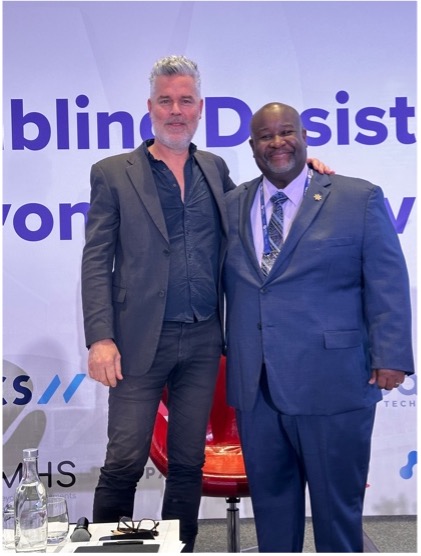 IACFP board members Diane Williams, Frank Porporino, and Gabriel Ong, as well as IACFP president Melvin Hinton and executive director Cherie Townsend, attended the ICPA annual conference in Singapore this past September. In this photo, the board members are with Dr. Mark Halsey, who delivered the 2024 IACFP Distinguished Scholar Lecture to conference participants.
IACFP board members Diane Williams, Frank Porporino, and Gabriel Ong, as well as IACFP president Melvin Hinton and executive director Cherie Townsend, attended the ICPA annual conference in Singapore this past September. In this photo, the board members are with Dr. Mark Halsey, who delivered the 2024 IACFP Distinguished Scholar Lecture to conference participants.
Dr. Halsey’s concluding remarks were:
- Prisons need at a minimum to uphold the conditions for primary desistance…otherwise all is but lost.
- The traditional focus on secondary desistance (the “between the ears” dimension of “rehabilitation” [McNeil]), needs to be tied to substantive investment in the conditions that ignite and support tertiary desistance. This necessarily means calling other key agencies and stakeholders to the table.
- There is an undeniable thread connecting the desired self (i.e., who someone wants to be or who others want them to be) and how others – including authority figures – label/treat them or permit them to be.
- Real change requires a motivated and well-resourced workforce, not just a motivated prisoner cohort.
- Desistance – and by default assisted desistance – are collective processes. They are very unlikely to be sparked, much less achieved, through individual “willpower” alone.
- The Macquarie Assisted Desistance Instrument (MADI), when combined with a bespoke Assisted Desistance Action Plan (ADAP) and the subsequent redistribution of the MADI to monitor change, can provide important data on how a prison (or sections thereof) support or thwart the conditions for desistance.
- Therefore, the MADI could be modified to assess the effectiveness of a particular reform initiative or policy change within or across correctional centres and community locations.
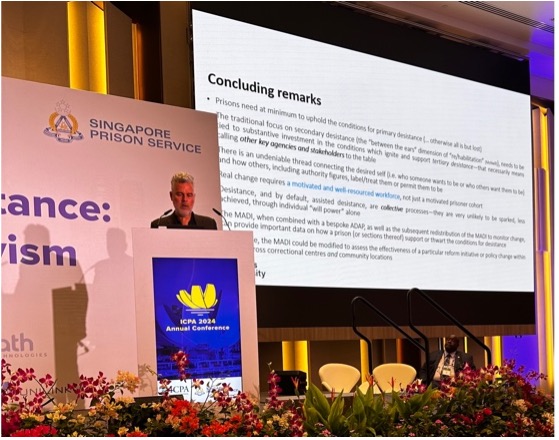
The IACFP representatives were actively involved in the ICPA conference, acting as moderators and facilitators, attending workshops and network meetings, and building international relationships. Conference highlights included:
- Participation in the 20th Annual Yellow Ribbon Run, which advocates for giving former prisoners a second chance to reintegrate into society.
- Fergus McNeill’s plenary on six forms of rehabilitation and reintegration.
- A look at Singapore’s Correction Model.
- Presentations by individuals with lived experience within corrections systems.
- Correctional wellness and staff engagement.
- An expanded focus on community corrections and community overall.
- Presentations on desistance and promoting desistance around the world.
The closing plenary was on a coaching model for corrections that is showing promising results on transforming culture.
2. Research
Risk Assessment and Indigenous Persons
“Too risky to use, or too risky not to? Lessons learned from over 30 years of research on forensic risk assessment with Indigenous persons” by Olver ME, Stockdale KC, Helmus LM, Woods P, Termeer J, and Prince J. was recently published in Psychological Bulletin (May 2024;150(5):487-553. doi: 10.1037/bul0000414. Epub 2024 Feb 15. PMID: 38358684.
This article is an excellent review of 91 studies featuring 22 risk tools and 15 risk/need/cultural domains, as well as 4 documents that identify culturally relevant factors. Since indigenous peoples are overrepresented in correctional systems internationally, this summary will assist readers in their selection of assessment tools and implementing practices that mitigate racism and recidivism.
Criminological Highlights
Criminological Highlights is published several times each year by the University of Toronto Criminology Department. Each issue contains conclusions for each of the eight articles included in the issue. This is then followed by summaries of each article. Since they scan approximately 120 journals to identify interesting criminological research, IACFP members may find this a welcome support for keeping up with current research.
The most recent issue of Criminological Highlights, Volume 21, No. 5 – August 2024, addresses the following questions:
- How can former prisoners mitigate the negative impact of imprisonment on finding employment?
- How do “tough on crime” judges create more crime than “soft on crime” judges?
- How can police services address the fear that Black residents have of the police?
- How might delinquency programs be made more effective?
- Did COVID-19 create an increase in domestic violence?
- Are sex offenders especially likely to repeat their offences?
- How does pretrial detention affect the outcome of criminal cases?
- How does pretrial detention increase the punitiveness of the criminal justice system?
Each of these articles is interesting, but the sixth article may provide the most relevant information for our readers: “What is clear from these findings – in both the US and Canada – is that ‘the public image of the sex offender as a life-course persistent sexual predator does not fit the reality of 555 empirical studies on recidivism’ (p. 183) examined as part of this study. The drop in reoffending does not appear to be related to the implementation of sex offender registration and notification laws in either country. Perhaps the focus on preventing sexual offending from reoccurring should be questioned. Given the relatively low rate of reoffending after a criminal conviction, a focus on preventing sexual offending from occurring in the first place may be a more productive approach to a serious problem.”
3. Practice
“Crisis Management – Toolkit for Penitentiary Training Academies"
This resource developed by EPTA was recently published on the Europris website. Its purpose is to raise awareness, provide guidance, enhance preparedness, facilitate response, and support learning and improvement. The toolkit highlights the role of leaders within organizations to effectively manage and resolve crisis situations. Many of these leaders can be found working in correctional psychology. Their involvement in the implementation of the toolkit is essential.
4. Conferences
The CEP Expert Group Meeting on Mental Health in Probation and Workshop on Mental Health Importance: Supporting Treatment Processes in Probation, 26 - 27 November 2024

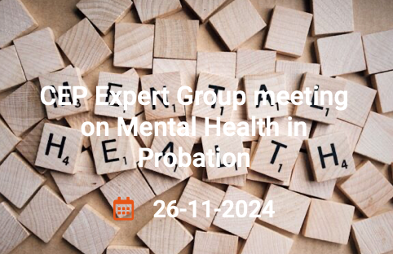
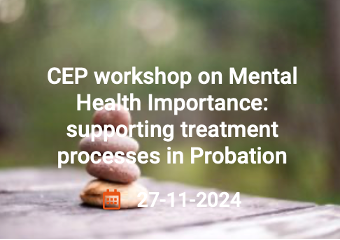
Programme: Click here to view the programme
Registration deadline: Until 11 November 2024. Click here to register.
Bursaries: CEP members who wish to attend a CEP event and are not able to (fully) fund their attendance may apply for a bursary through the following link: https://www.cep-probation.org/application-bursaries/
Venue:Centre for Legal Studies and Specialized Training,
C/ de Pau Claris, 158, 08009 Barcelona
THE ACA WINTER CONFERENCE, 10 - 14 January 2025
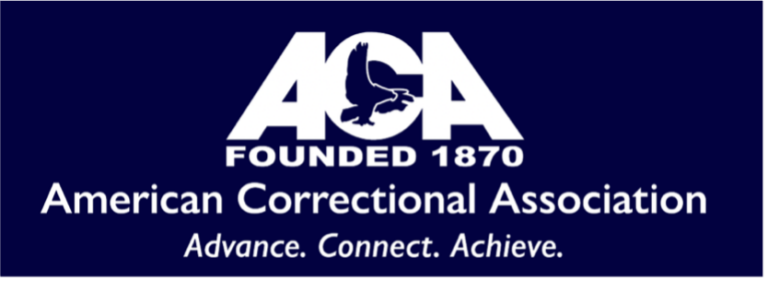
The ACA Winter Conference will take place 10 - 14 January 2025 in Orlando, FL. More information on the conference as well as registration can be accessed here.
WOMEN IN CORRECTIONS CONFERENCE, 19 - 21 February 2025
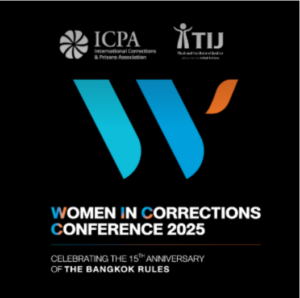
The Thailand Institute for Justice and ICPA are hosting the “Women in Corrections Conference 2025” in Bangkok, Thailand on 19 - 21 February 2025. Information on registration, housing, etc. will be available at www.icpa.org.

